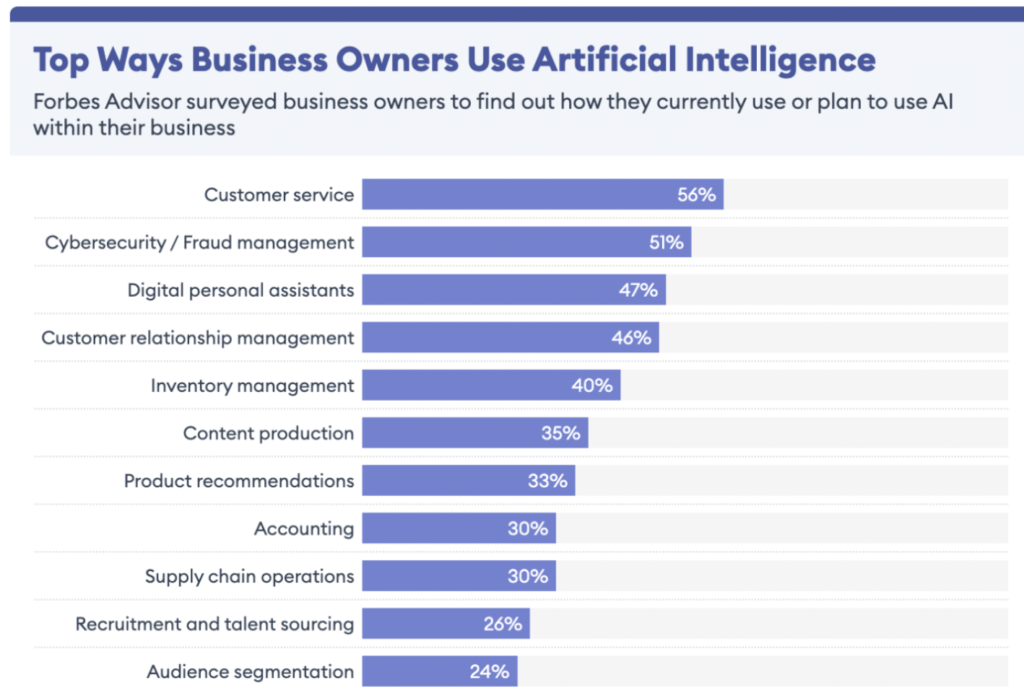Top fields that use AI in their business
As can be seen from the table below, among the most favored applications are customer service, which sees 56% of respondents employing AI, along with cybersecurity and fraud management, embraced by 51% of businesses. Additionally, AI finds notable applications in customer relationship management (46%), digital personal assistants (47%), inventory management (40%), and content creation (35%). Moreover, businesses are leveraging AI for product suggestions (33%), accounting (30%), supply chain management (30%), talent acquisition (26%), and audience segmentation (24%).
 Concerns Business Owners Have Using Artificial Intelligence
Many business owners worry about relying too much on technology. Around 43% are concerned about becoming too dependent on AI, while 35% fear they may lack the skills needed to use it effectively. Additionally, 28% are apprehensive about potential bias errors in AI systems.
Concerns Business Owners Have Using Artificial Intelligence
Many business owners worry about relying too much on technology. Around 43% are concerned about becoming too dependent on AI, while 35% fear they may lack the skills needed to use it effectively. Additionally, 28% are apprehensive about potential bias errors in AI systems.
One-third of Businesses Fear AI Could Lead to Job Loss
A significant concern is the impact AI might have on jobs, with 33% fearing it could reduce the human workforce. This concern is shared by the wider public, with 77% of consumers also worried about potential job losses due to AI.One-third of Businesses Worry About AI Spreading False Information
Another concern is AI providing incorrect information, with 30% worried about misinformation. Additionally, 24% fear this could harm customer relationships, and 31% have privacy concerns regarding data security and privacy in the AI era.Almost All Business Owners See Potential in ChatGPT
The majority of business owners believe ChatGPT could benefit their operations, with 97% seeing at least one potential advantage. Specifically, 74% believe it could assist in responding to customers via chatbots. Moreover, businesses see AI being useful in various other ways, such as facilitating communication via email (46%), creating website content (30%), fixing coding errors (41%), translating information (47%), summarizing data (53%), improving decision-making (50%), and creating multilingual content (44%).Conclusion
In short, AI is making a big impact on how businesses work, from improving customer service to making operations smoother. But, we also need to think about things like job changes and keeping data safe. Going forward, it’s important to keep using AI in smart ways and to solve any problems that come up.Tags: AI
